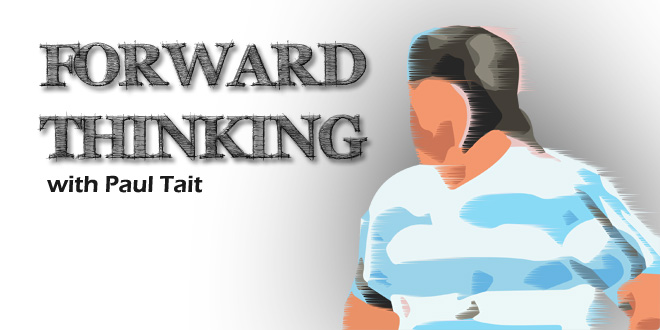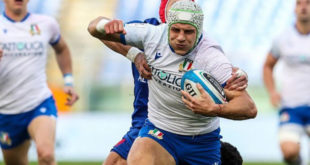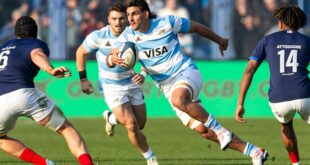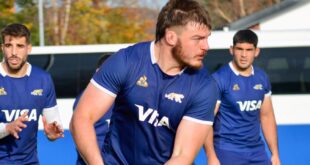World Rugby must act to change player eligibility rules immediately. It cannot allow for test match rugby to be tarnished any further. The sport is under attack at the highest level as unions are using the laws to their advantage to identity talent and nationalize players to, within three years, have them playing for them.
- Country of Birth
- Country in which one or both parents were born.
- Country in which one or more grandparents were born.
- 36 consecutive months of residency immediately preceding time of playing first test match.
To comply a player must have not played for another union’s official ‘A’ side. In cases where there is no ‘A’ side the under 20’s team is considered the default ‘A’ side. These laws have been the norm for a significant period of time now but have run their course.
To any readers who feel that player eligibility laws do not need changing be warned – you may change your mind upon reading this edition of Forward Thinking.
I have discussed this very theme with many a rugby supporter not to mention many administrators. It has assisted me in my personal views and has very much clarified the issue. I firmly believe that two immediate changes are mandatory.
- Grandparent Law must be ended with immediate effect.
- Residency must increase to five years with immediate effect.
Who benefits from Grandparent law?
Is it Japan or Tonga? No. So how about Namibia, Romania or Samoa? Again no. It must therefore be Fiji and Canada then surely? After all does World Rugby not have the ultimate goal of making Rugby World Cups as competitive as possible?
The answer to this is that the real benefactors from the grandparent law are Tier 1 countries. Namely Ireland, Italy, Scotland and Wales. At Rugby World Cup 2015 my colleagues and I at Americas Rugby News compiled a complete list of all foreign born players. It can be accessed here.
The results were highly conclusive that the grandparent law benefits the established more than the developing nations. Rugby World Cup 2015 Quarter Finalists Ireland, Scotland and Wales accounted for seven of the thirteen players whose eligibility was captured via the grandparent ruling.
England also had Brad Barrit qualifying based on the grandparent law. This is the same number as the USA and Canada who fielded Greg Peterson and James Pritchard respectively. Italy fielded Martín Castrogiovanni, Gonzalo García and Luke McLean.
A calculator is not needed to confirm that Tier 1 nations not Tier 2 nations were the benefactors. In fact the margin was such that the five named union members of the Six Nations Championship were responsible for eleven of the thirteen World Cup players qualifying via a grandparent.
Grannygate
Let us wind the clock back to Rugby World Cup 1999 to get some additional perspective. At that Rugby World Cup there was no shortage of returners from Rugby World Cup 1995 and many of these were now playing for a different country.
Missing out on Rugby World Cup 1995 for New Zealand was Shane Howarth. Having played four tests for the All Blacks in 1994 the fullback was subsequently dropped. Head Coach Laurie Mains instead took Glen Osborne and had utility options from Marc Ellis, Simon Culhane and Jeff Wilson.
For Howarth it meant his international career, for New Zealand, was ended prematurely. A reverse example is that of Frank Bunce. Having played for Western Samoa in Rugby World Cup 1991 Bunce then played for New Zealand in Rugby World Cup 1995. With laws at the time being flexible he was one of many to change allegiance. Indeed Bunce was an All Black in 1992.
At Rugby World Cup 1999 both Samoa and Wales were pooled with Argentina. The fourth participant was Japan. Argentina came up against players who had played for other countries previously.
Representing Samoa were Stephen Bachop, Pat Lam and Va’aiga Tuigamala. All had played for New Zealand at one time or another. A second Bachop also faced Argentina – Graeme. Having played in the Rugby World Cup 1995 final for New Zealand he played for Japan in the next World Cup. He was not alone as the same was true of Jamie Joseph.
For Wales Howarth was joined by Brett Simkinson. Both were New Zealanders who qualified via the grandparent law. But, in actuality, neither had Welsh grandparents. In March 2000 a scandal rocked Wales called Grannygate. It was revealed that the union had, knowingly or not, cheated by fielding ineligible players.
The resulting investigation implicated an additional four players. Three were exonerated and the fourth, Colin Charvis, was subsequently entitled to play for Wales on the grounds of residency. Also involved was Scottish international Dave Hilton whose grandparents were discovered to actually be, like him, English.
Miraculously Scotland and Wales went on to be confirmed as sub-hosts for Rugby World Cup 2007. Quite the reward for fielding illegals in Rugby World Cup matches.
Buying Players
Scotland was the most significant benefactor of the grandparent law in Rugby World Cup 2015. Four players qualified on these grounds. They were Englishmen Tim Swinson and Ryan Wilson and New Zealanders John Hardie and Sean Maitland.
In the case of Hardie and Maitland both players were on record as wanting to be All Blacks. In missing out on selection both took up offers to play for Scotland and moved to play for Glasgow and Edinburgh in the Guinness Pro 12.
The players are cases in point of one union acquiring the products of another. Heavy investment from New Zealand saw both going through the national system and being regulars in Super Rugby. Scotland thereby got them very cheaply as another union had done all the spending on their development.
Such action is effectively importing or buying players from abroad. Unfortunately it is a common practice wherein unions exploit the laws to their advantage. Not all unions benefit from the grandparent law but any with professional rugby can do so from residency.
There are many Hardie’s and Maitland’s who do not have grandparents to be fast tracked into another country’s test team. They instead move to play rugby in that country and thirty-six months later they earn caps. Scotland did precisely this with South African prop WP Nel.
Nel was signed by Edinburgh, a team directly controlled by the Scottish Rugby Union (SRU). The signing was done in July 2012 which meant there was sufficient time for him to compete three years and then play for Scotland at Rugby World Cup 2015.
Identical behavior from the SRU resulted in the acquisition of another South African, Josh Strauss. He arrived at Glasgow on September 11 2012 and became eligible for Scotland just one week before Rugby World Cup 2015 began. He was, like Nel, produced by South Africa and a regular in Super Rugby only to be capped by another.
World Rugby’s laws therefore, like grandparent ruling, work in the favor of those with professional rugby. A union can, under Regulation 8, freely sign an uncapped foreigner and nationalize him quickly. In other words all countries have free permission to identity talent and convince them to move to their country. They must have professional rugby which means the richer get richer while Canada, Georgia and Tonga cannot acquire players such as Nel or Strauss.
The example of Strauss from four years ago is worth looking at again today. The reason being that Rugby World Cup 2019 starts on September 20 2019. Any country involved in the qualifying process thereby has a chance to buy top players and field them in Japan 2019.
If a union could buy up players this week and move them to their shores it could seriously compete well at the tournament. Just to demonstrate the absurdity of the three year eligibility below is a team made up of players whose eligibility has not yet been captured. In theory a probable Japan 2019 qualifier such as Italy or Romania could get all of them this week. Indeed, Romania did this to get players for 2015. In addition last year Italy openly advertised in South Africa for second-rowers to become eligible for Italy in Rugby World Cup 2019.
| # | Player | Country | Club |
| 1 | Florian Fresia | France | Toulon |
| 2 | Harry Thacker | England | Leicester Tigers |
| 3 | Antoine Tichit | France | Castres |
| 4 | Jean Kleyn | South Africa | Munster |
| 5 | Thibault Lassalle | France | Castres |
| 6 | Sam Underhill | England | Ospreys |
| 7 | Will Fraser | England | Saracens |
| 8 | Nathan Hughes | Fiji | Wasps |
| 9 | Yann Lesgourges | France | Bordeaux |
| 10 | Marty Banks | New Zealand | Treviso |
| 11 | James Short | England | Exeter Chiefs |
| 12 | Henry Trinder | England | Gloucester |
| 13 | Henry Chavancy | France | Racing 92 |
| 14 | Damian McKenzie | New Zealand | Chiefs |
| 15 | Gaetan Germain | France | Brive |
It is undeniably a world class lineup. Gaetan Germain has scored a staggering 61% of all of Brive’s points since his arrival from Racing 92. He is arguably the best French goal kicker and him being non-capped defies logic. Give him former Fijian u21 Nathan Hughes as a ball-carrying teammate and it would be a recipe for success. Hughes is, indeed, a player changing nation. Thanks to the three year residency ruling England will cap him this year.
The policy is very much alive. Marty Banks moved from Super Rugby to Treviso, Italy this season and is very much an option for 2019. If the FIR can come up with the money this week they could sign many others from the list above. Banks will be eligible just like Nel and Strauss became Scots.
Curiously the extent of the issue is so large that Ulster have been forced to release Ruan Pienaar due to his nationality. Being capped by South Africa means, under Irish rugby laws, that he is taking the spot of a prospective Irish international. The flaw is that Ireland is actively buying players and making them Irish after three years. Examples include Rodney Ah You, Bundee Aki, Jake Heenan, Jared Payne, Quinn Roux, CJ Stander and Nathan White.
 Americas Rugby News Rugby news from across the Americas!
Americas Rugby News Rugby news from across the Americas!




